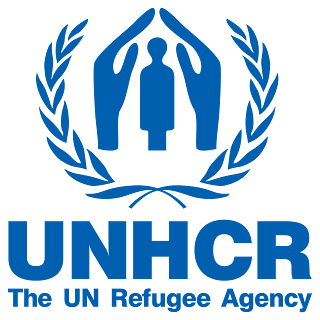CHALLENGES LGBTI REFUGEES IN NAIROBI FACE
In 2014, the Uganda president Yoweri Kaguta Museveni signed
the Anti-gay bill. This made Homosexuality illegal in the country, forcing many
LGBTI persons to flee their homeland for their lives to safer places. A number
of Ugandan LGBTI persons fled the country for fear for their lives and
persecution because of their sexual orientation. They have continued to seek
asylum in the neighbouring country Kenya. However, life in Kenya has not been any
different from the one they fled their country for; they face a lot of
challenges far worse than the cases in their home country.
Discrimination; The
host communities in Kenya do discriminate LGBTI refugees the moment they learn
about his/her sexual orientation. Kenyan national have become curious about the
influx of Ugandan nationals who come and settle in their areas but have nothing
meaningful they do and they stay too many of the same gender in a single 10ft X
10ft room or less.
Arbitrary arrests; Even
though it’s the police is mandated to offer protection for all, it has excluded
LGBTI refugees in its line of duty. Many refugees have been victims of police
brutality, torture and arrest with no reason to an extent that on several
occasions the police has raided the houses where refugees reside, thorough
checks them and arrest all individuals found in. this is done with no either an
arrest or search warranty but rather reports of suspicions from the Kenyan
neighbours.
Documentation; LGBTI
refugees have failed to engage in activities that can earn them a penny due to
lack of proper documents to support their status and existence in the host
country. Many Authorities and employers find the asylum seekers’ pass given out
by the UN Refugee Agency – UNHCR not satisfactorily enough to entrust refugees
with positions in their firm. This has greatly hindered refugees who would wish
to seek for jobs. The asylum seekers pass seems to be not fully recognised by
the Kenyan government since even when a refugee presents the document to Authorities;
instead they are arrested and forcefully transported to Dadaab & Kakuma
refugee camps which are the very hostile for LGBTI refugees hence LGBTI
refugees find themselves keeping indoors all the time.
"LGBTI refugees live in very hostile
and homophobic communities.
No one even wishes to employ a gay man."
Language Barrier; Kenya
is a Swahili speaking nation and with a few nationals who communicate in
English in their day to day life. The fact that the refugees do not speak the
language puts them in a position where they cannot know about their hostile
communities’ plans to attack them. The language barriers also make
communication between them and the nationals very difficult hence creating no
room for interaction between the two parties.
Unemployment;
LGBTI refugees live in very hostile and homophobic communities. No one wishes
to employ a gay man. This is why Cosir Kenya has come up with strategies to see how
best LGBT refugees can get involved in livelihood projects and also to create
awareness in the host communities about LGBTI persons.
Financial hardships; the
UN refugee Agency offers Ksh.4500 (approximately US$.45) to a number of
refugees to sustain an individual for the entire month. Being that the amount
offered is too little to sustain one for a full month having to cater for food,
Rent, and Medical bills, LGBTI refugees have resorted to involving themselves
in activities for survival like Sex-work which is again illegal in Kenya and
punishable by law to up to 7 years in prison
Insecurity and Safe
housing; LGBTI refugees residing in Nairobi face a lot insecurities because of their sexual orientation and theirstatus in the country. Their peace has been majorly been violated by kenyan nationals whom they stay and interact with in their day to day life. This calls demand for safer housing for LGBT refugees in order to at least guarantee their security and also keep them quiet away from the homophobic host communities. The trans-gender persons are highly targeted too.
Health; Given their status and sexual identity, LGBT person find it hard hard to access health facilities due to fear of exposing themselves, and also they are denied health services basing on their sexual orientation. almost all public hospitals in the country deny provision of service to gay persons, Many LGBT refugees have reported cases of rape but cant access post-rape health examinations because of their status. A few NGOs LGBT friendly health facilities like HOYMAS are quiet distant from where these refugees reside hindering them services from their.




Comments
Post a Comment